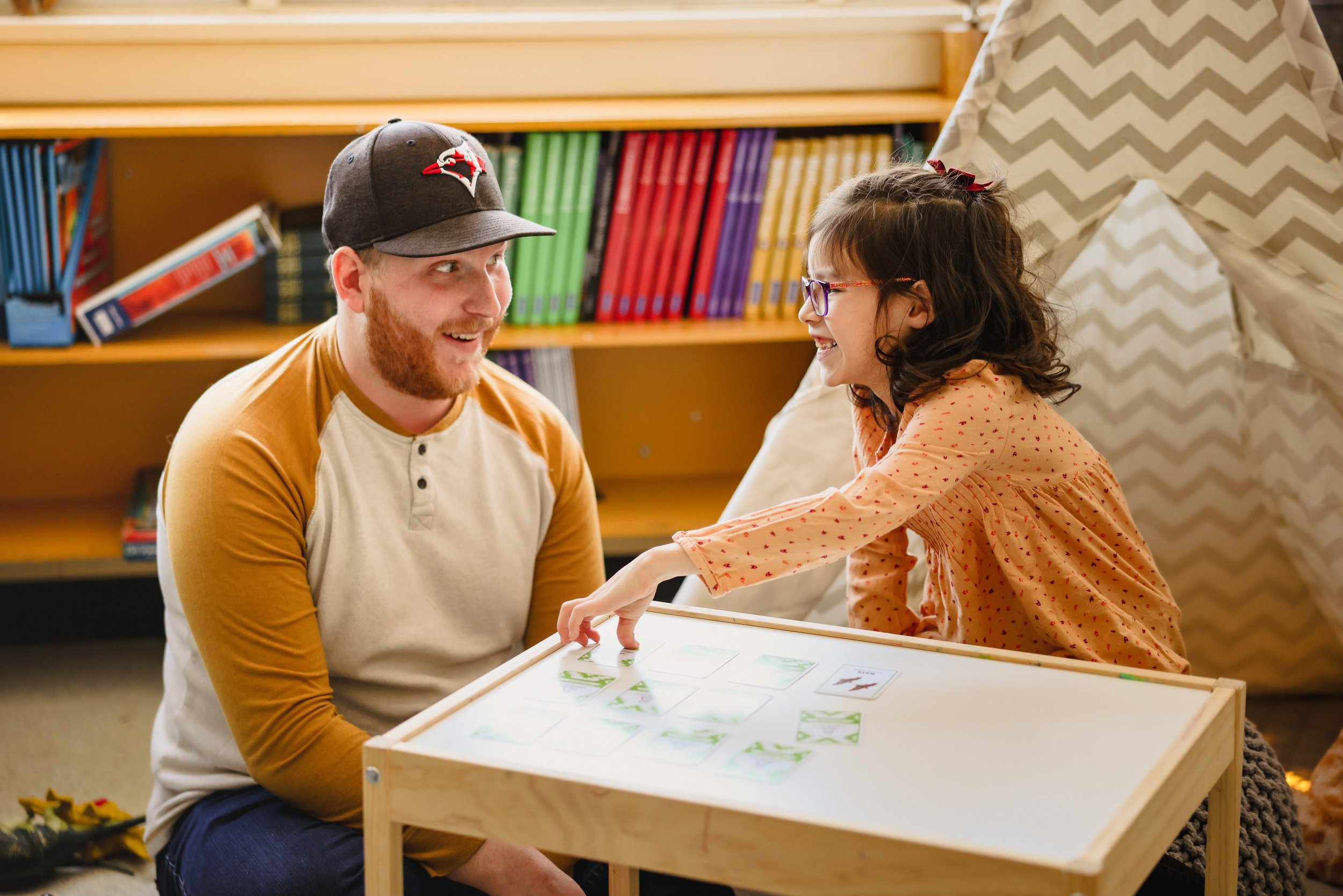
Frequently Asked Questions
-
Speech language pathologists (SLPs), also known as speech therapists, are trained professionals who specialize in preventing, assessing, diagnosing, and treating disorders of speech, language, communication, literacy, and swallowing.
-
Students in the NVSS Speech Program will have the opportunity to participate in one-on-one speech practice sessions with trained educational assistants for 30 minutes every day! Consistent practice helps students improve their speech quickly and play-based activities make learning speech fun!
-
Packages are sent home weekly showing which sound your child is working on that week, and activities/games are provided for you to practice together at home. Speech therapy is a little like dieting – it’s not very effective if you’re only doing it once a week! This is why NVSS speech programs are tailored to provide students with daily speech sessions – to facilitate swift progress of skills during early learning years in order to prevent speech difficulties from further contributing to problems with literacy and academic performance. The more they can practice their sounds (at school AND at home) the better!
No time? - No worries! Even 5-10 minutes of practice each day can make a difference!
-
Failed hearing screens do not necessarily mean that your child has a hearing problem (e.g. noise interference during testing or false-positive results), however, it is still recommended your child see a pediatric audiologist and/or family practitioner to eliminate the possibility of any hearing issues.
Hearing loss in children is most often due to ear infections (resulting in a build-up of fluid in the ear). Fluid can block sound which can restrict hearing and lead to difficulty discriminating speech sounds. If left untreated, some infections can cause so much pressure that the eardrum perforates, which can result in long-term hearing loss.
Signs of a hearing loss may be so subtle that a parent/caregiver may not suspect that something is wrong. Here are some behaviours to look for that might indicate problems with hearing:
• Difficulty understanding
• Difficulty following instructions
• Delayed speech and language
• Unclear speech
• Non-responsiveness to others speaking; their name; environmental sounds
• Answers inappropriately to simple questions
• Complains of ear pain or noises/ringing
• Watch lips closely when someone is speaking
• Asks for things to be repeated frequently
• Listens to the television/music at a high volume
• Speaks loudly
• Poor reading and/or academic performance

Handy Links
Looking for a private speech therapist for extra support?
Is it time to get your child’s hearing tested by a pediatric audiologist?




